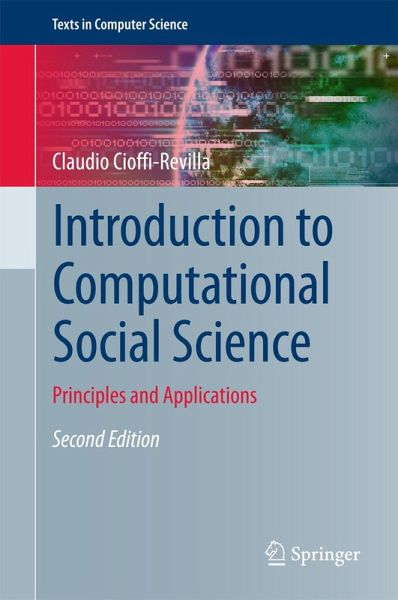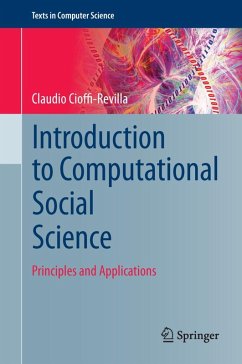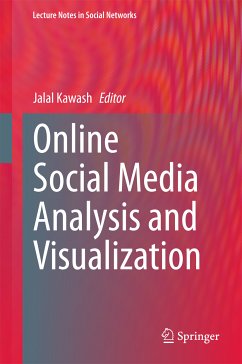
Introduction to Computational Social Science (eBook, PDF)
Principles and Applications
Versandkostenfrei!
Sofort per Download lieferbar
68,95 €
inkl. MwSt.
Weitere Ausgaben:

PAYBACK Punkte
34 °P sammeln!
This textbook provides a comprehensive and reader-friendly introduction to the field of computational social science (CSS). Presenting a unified treatment, the text examines in detail the four key methodological approaches of automated social information extraction, social network analysis, social complexity theory, and social simulation modeling. This updated new edition has been enhanced with numerous review questions and exercises to test what has been learned, deepen understanding through problem-solving, and to practice writing code to implement ideas. Topics and features: contains more t...
This textbook provides a comprehensive and reader-friendly introduction to the field of computational social science (CSS). Presenting a unified treatment, the text examines in detail the four key methodological approaches of automated social information extraction, social network analysis, social complexity theory, and social simulation modeling. This updated new edition has been enhanced with numerous review questions and exercises to test what has been learned, deepen understanding through problem-solving, and to practice writing code to implement ideas. Topics and features: contains more than a thousand questions and exercises, together with a list of acronyms and a glossary; examines the similarities and differences between computers and social systems; presents a focus on automated information extraction; discusses the measurement, scientific laws, and generative theories of social complexity in CSS; reviews the methodology of social simulations, covering both variable- and object-oriented models.
Dieser Download kann aus rechtlichen Gründen nur mit Rechnungsadresse in A, B, BG, CY, CZ, D, DK, EW, E, FIN, F, GR, HR, H, IRL, I, LT, L, LR, M, NL, PL, P, R, S, SLO, SK ausgeliefert werden.












